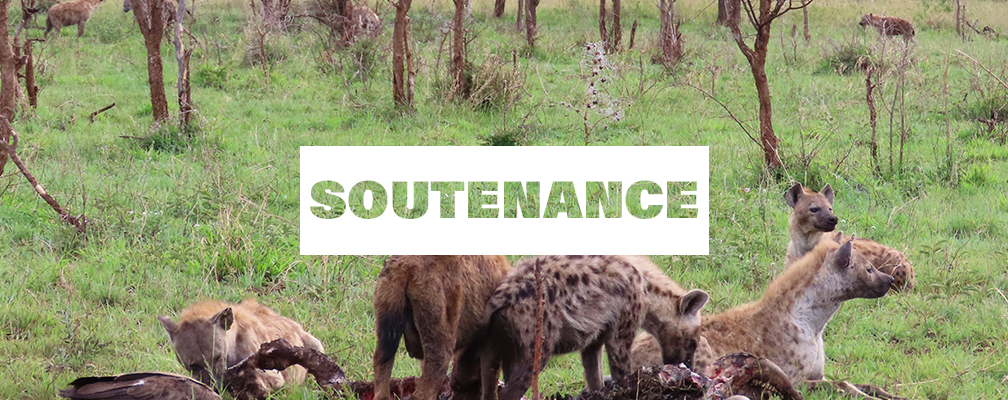

Soutenance de thèse de Mellina Sidous
Spotted hyaenas (Crocuta crocuta) and african vulture (Gyps africanus) feeding on the carcass of a blue wildebeest (Connochaetes taurinus) ©Sarah Benhaeim
Mellina Sidous a le plaisir de vous convier à sa soutenance de thèse, intitulée : Scavenger in a changing world: responses and consequences from population to community levels. La soutenance se déroulera le vendredi 6 décembre à 14h00, dans l’amphithéâtre Balard du campus CNRS de Montpellier (1919 route de Mende, 34090 Montpellier).
La soutenance peut être suivie à distance grâce au lien suivant : https://www.youtube.com/live/9wB2bKf3cSc
Composition du jury :
Elsa Bonnaud, Université Paris-Saclay – Referee
Marcos Moleón, Universidad de Granada – Referee
François Bretagnolle, Université de Bourgogne – Examinator
Patrick Giraudoux, Université de Franche-Comté – Examinator
Cristina Banks-Leite, Cristina, Imperial College London – Examinator
Elise Huchard, Centre National de la Recherche Scientifique – Examinator
Marion Valeix, Centre National de la Recherche Scientifique – Guest
Sarah Benhaiem, Leibnitz Insitute for Zoo and Wildlife Research – Guest
Loïc Bollache, Université de Franche-Comté – PhD Director
Sarah Cubaynes, École Pratique des Hautes Études – PhD Supervisor
Résumé :
Carcasses offer a rich and energy-efficient food source for scavengers, allowing them to bypass the energetic costs of with hunting. Scavenging therefore represents a foraging strategy with net benefits, which is observed among many vertebrate species when the opportunity arises. Over the past decades, numerous studies have highlighted the crucial role of scavenging in shaping population dynamics, predator-prey interactions, community structure and ecosystem functioning. Despite this, the importance of scavenging for scavenger species, and the factors driving its variation over spatio-temporal scales remain poorly understood. Moreover, the extent to which changes in scavenger communities affect ecosystem functioning, top-down interactions, and their long-term consequences on predators and prey populations is unclear.
This thesis investigates how scavenger species respond to environmental changes and how these responses influence population dynamics, predation interactions, and community structure. Focusing on three contrasting ecosystems—the Serengeti National Park (Tanzania), Hwange National Park (Zimbabwe), and the Brazilian cerrado—it explores the consequences of key environmental changes. In the Serengeti, I examined how spotted hyenas adapt to the decline in migratory prey, their primary resource, revealing insights into their foraging strategies. In Hwange, I investigated how pulses of elephant carcasses impact the dynamics between hyenas and their live prey, shedding on the interplay between scavenging and predation. In the cerrado, the I assessed how vegetation loss alters scavenger community structure and efficiency, illustrating the broader implications of habitat changes. The findings emphasize the behavioral flexibility of scavengers and their capacity to adapt to environmental disturbances. At the same time, they underscore the importance of local ecological contexts in shaping scavenging dynamics and their effects on ecosystems. This research opens new perspectives and highlights the need to assess scavenging rates and the availability of different food sources in future studies.
